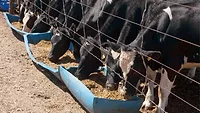With Four Other EU Agencies, EFSA Signs Joint Commitment to One Health Agenda

Image credit: European Commission
The European Food Safety Authority (EFSA) has published a joint statement with other EU environment, public health, and food safety agencies to express their commitment to supporting the One Health agenda. Specifically, the statement was co-authored by EFSA, the European Center for Disease Prevention and Control (ECDC), the European Chemicals Agency (ECHA), the European Environment Agency (EEA), and the European Medicines Agency (EMA).
One Health considers the interdependence of people, animals, plants, and ecosystems when addressing threats to human and environmental health. Such threats include zoonotic and (re)emerging infectious diseases, non-communicable diseases linked to environmental risk factors, antimicrobial resistance (AMR), and climate adaptation.
The statement was signed by the agencies at the One Health Conference—One Health for All, All for One Health, which took place in Luxembourg City on November 13, 2023. The conference was organized by the Directorate General for Health and Food Safety of the European Commission (DG SANTE), and served as an opportunity to review the current state of One Health implementation in Europe and discuss future efforts to strengthen One Health.
According to the joint statement, taking a One Health approach is necessary to successfully address the multiple challenges facing Europe in the areas of human, animal, and plant health; food safety; the climate crisis; and environmental sustainability. The five EU agencies, which established a cross-agency task force in 2022 to further implement their own collaborative efforts on One Health, emphasized four urgent priorities for action:
- Improving One Health data availability, accessibility, interoperability, and reusability, as well as strengthening the scientific evidence base for One Health action by filling knowledge gaps about AMR, infectious diseases, chemical pollution, and the effects of climate change
- Mainstreaming the One Health approach in EU scientific advice and risk assessment
- Establishing coordination mechanisms across human, animal, and environmental sectors by aligning surveillance and early warning systems in the EU with the One Health framework, specifically prioritizing integrated surveillance systems, including ecological monitoring and information on drivers of disease emergence
- Strengthening One Health educational and training programs.
The One Health approach has gained significant relevance in the EU in recent years, and it is reflected in the goals outlined in the European Green Deal, the European Health Union, and the EU Global Health Strategy. International organizations have also acknowledged the importance of One Health in their work, such as the Food and Agriculture of the United Nations (FAO), the World Health Organization (WHO), the United Nations Environment Program (UNEP), and the World Organization for Animal Health (WOAH) in their One Health Joint Plan of Action (2022–2026).
Looking for quick answers on food safety topics?
Try Ask FSM, our new smart AI search tool.
Ask FSM →









.webp?t=1721343192)